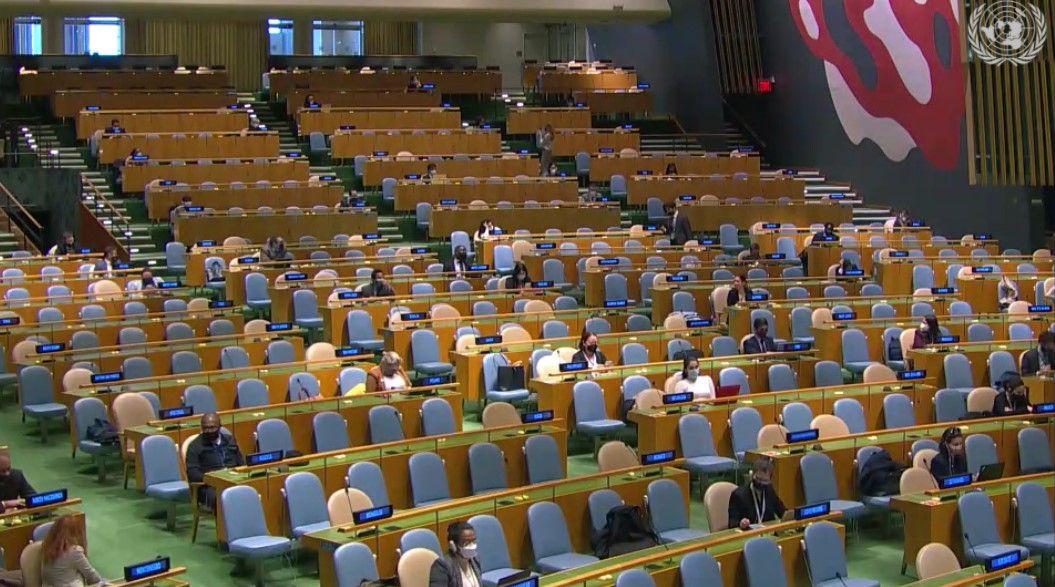The 11th session of the UN’s Open-ended Working Group on Ageing took place at the end of March against the backdrop of the continued COVID-19 pandemic and in the aftermath of some of the gravest violations of older people’s rights.
Less than one year earlier 146 states from around the world had committed to promoting and respecting the rights of older persons, responding to calls to ‘cull’ older people in the media and the serious violations of rights in care homes and discriminatory age-based restrictions on older people’s movement.
Eleven months on, only eight of those who made that commitment took part in the discussion on COVID-19 and its impact on older people at the meeting of the UN Open-ended Working Group on Ageing.
Furthermore, despite the UN Secretary General’s call to action to accelerate progress towards an international legal instrument, and the priority given to a new UN convention for the rights of older people by the public in consultations to mark 75 years of the UN, only two states took part in the discussion on how the rights to social protection and education apply in older age.
This lack of engagement by states fails older people everywhere today and in future generations.

As Emilia Romano from HelpAge Italia told the Open-ended Working Group, ‘The full respect of the rights of older people in care homes could have prevented deaths during the emergency, but also could have prevented great suffering and a sense of fear, abandonment and loneliness.’
The technical challenges of a virtual meeting meant some NGOs were unable to speak, but civil society’s engagement in the process continued to grow. 39 NGOs submitted statements, 35 made oral interventions, and another 38 officially registered to participate in the work of the Open-ended Working Group, bringing the total to 197.
As the 394 civil society organisations of the Global Alliance for the Rights of Older People said, ‘Further inaction by Member States in face of the evidence of the need for a convention is inexcusable’.
A new study by the Office of the High Commissioner for Human Rights provides unequivocal evidence of the gaps in protection of older people’s rights. Ten years of work by the Open-ended Working Group on Ageing provides the content to start drafting a new convention.
It’s time to move on. As Natasa Todorovic from the Red Cross of Serbia said, ‘We must use the current global crisis as a wake-up call.’
And there are states who are ready to do just that.
They proposed setting up a group to work between sessions of the Open-ended Working Group on Ageing to move things forward.
Civil society and national human rights organisations also called for a group to draft a new convention, to be made up of human rights experts from states as well as civil society, national human rights institutions, the Independent Expert on the rights of older people and the Office of the High Commission for Human Rights.
We now need to take this forward – and that is not without its challenges. A handful of states supported the idea, a couple said they needed to think about it and a couple rejected it. But the majority did not comment.
As Rohit Prasad, chief executive officer of HelpAge India said when addressing the working group, ‘The time to act is now, for if not now, then when?’
